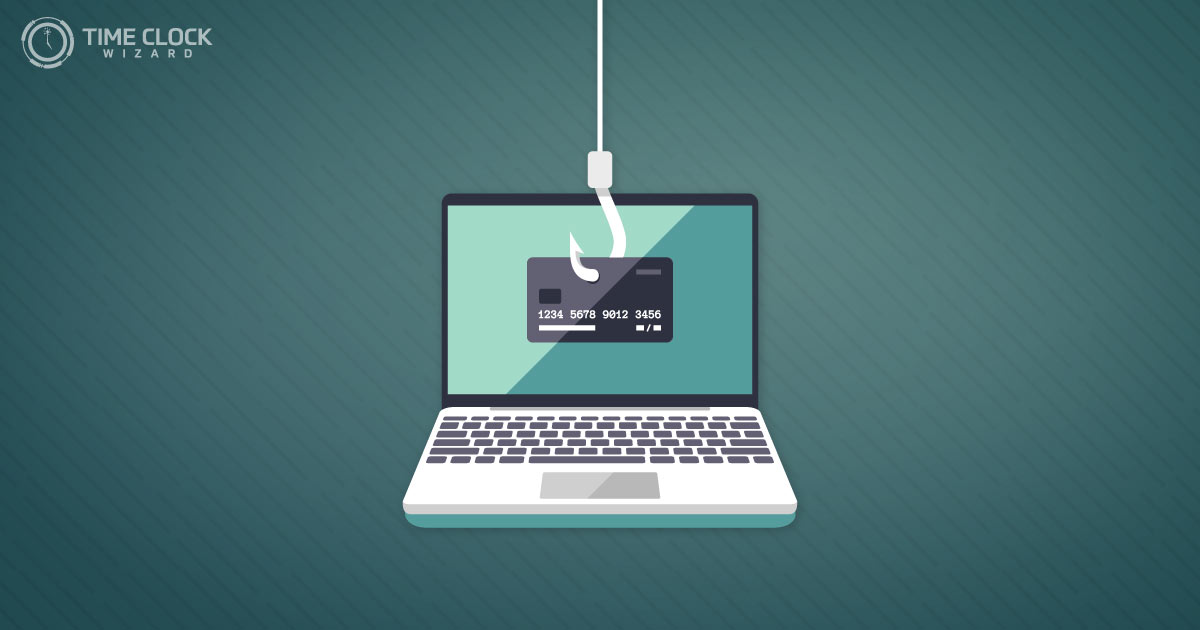
Navigating the complexities of unemployment can be daunting, especially when you’re steering the ship of your own venture. But what happens when the waters get rough? Can small business owners file for unemployment? It’s a pertinent question that many don’t think about until they’re in a pinch. This article dives into the eligibility criteria and necessary steps that small business owners should be aware of when considering filing for unemployment.
Understanding the rules and regulations surrounding unemployment benefits can empower you to make informed decisions about your future. Whether it’s due to economic downturns or unexpected business disruptions, knowing your rights and options is crucial. Are you prepared to find out how you can secure your financial stability during tough times? Let’s explore the essential insights and guidelines tailored specifically for small business owners navigating the realm of unemployment filings.
Understanding Unemployment Eligibility for Small Business Owners
Navigating the eligibility for unemployment can often be a confusing process for small business owners. Since each state has different rules and criteria, it’s essential to understand how these apply to entrepreneurs. Are you aware of the requirements in your state?
Typically, eligibility for unemployment benefits hinges on several key factors, such as the reason for the business’s closure or reduction in operations, previous earnings, and the structure of the business—whether it’s a sole proprietorship, partnership, or corporation. It raises an important question: have you checked whether your business structure meets the criteria so small business owners file for unemployment?
- Review the specific unemployment policies in your state.
- Ensure your business’s financial statements are up to date.
- Consult with a legal advisor to understand complex situations.
Understanding these details can be the key to successfully navigating the process and securing the benefits that can support you through tough times. 📈

Key Criteria for Unemployment Claims by Business Owners
When small business owners explore the option to file for unemployment, it’s crucial to understand the key criteria that define eligibility. Have you ever thought about what factors specifically affect entrepreneurs in this context? Let’s dig into the nitty-gritty details that might influence your claim.
Understanding Ownership and Operational Roles
A core aspect for any small business owner is proving that their unemployment status is due to circumstances beyond their control, such as economic downturns or mandatory closures. Do you have minimal operational activities in your business right now? This could substantiate a claim, as long as you aren’t drawing regular income from the business.
Income and Contribution Verification
State agencies also require proof of income and unemployment insurance contributions, which might not be standard for all small business entities, such as sole proprietorships or partnerships. Did you pay into the unemployment insurance fund? Answering this question will play a pivotal role in determining your eligibility for filing.
How to File for Unemployment as a Small Business Owner
Filing for unemployment as a small business owner might seem daunting, but it’s a crucial step if you’ve found yourself in a tight spot. The process varies slightly from state to state, but the fundamental steps remain consistent. Here’s how you can navigate through it effectively.
Step-by-Step Process to File for Unemployment
- Check your eligibility: Confirm that as a small business owner, you meet the state-specific requirements to apply for unemployment benefits.
- Register with your state unemployment office: Usually, this can be done online via the state’s Department of Labor website.
- Gather necessary documentation: Prepare documents that prove your income, such as tax returns, salary slips, and any business ownership papers.
- Complete the application: Fill out the application form with accurate details about your business and employment history.
- Submit and follow up: After submission, keep track of your application status and respond to any additional requests for information.
While the thought of navigating through bureaucratic procedures can be overwhelming, the relief that comes with obtaining unemployment benefits can be substantial. Have you explored all the resources available to you? 🤔 Remember, each state offers slightly different support systems and it’s crucial to consult local guidelines. Completing your unemployment claim accurately and promptly can significantly smooth out the process.

Challenges Small Business Owners Face in Filing for Unemployment
Navigating the process of filing for unemployment can be a daunting task for small business owners. Unlike traditional employees, owners often face unique and perplexing hurdles. What are the major challenges they encounter, and why is it often more complicated for them?
Firstly, determining the eligibility to claim unemployment benefits can be a confusing process for many. Small business owners have to prove that their lack of income is not by choice but by necessity, which is not always straightforward. The complexity increases with the need to provide extensive documentation proving their previous earnings and the current state of the business. Have you ever considered how challenging it could be to gather and submit these documents accurately?
Moreover, the fluctuating income levels, common in small businesses, can complicate benefit calculations. Many local unemployment offices run into difficulties determining consistent benefits for such variable income patterns. This results in delays or even inaccuracies in processing claims, adding to the stress of an already challenging situation.
Additionally, since small business owners are often seen as ‘self-employed’, some states may have different requirements or additional hoops to jump through when it comes to eligibility. This variance from state to state can be not only confusing but frustrating as it requires owners to be very knowledgeable about their specific region’s unemployment policies.
Recent Changes in Unemployment Laws Affecting Entrepreneurs
Navigating the labyrinth of unemployment laws can be tricky, especially for entrepreneurs. Recently, there have been significant changes aimed at addressing the unique challenges faced by small business owners during economic downturns. But what do these changes mean for you as an entrepreneur?
For starters, several states have revised their criteria to include provisions specific to small business owners. This is a vital shift, considering that previously, many entrepreneurs were left out of the safety net provided by unemployment benefits. With these adjustments, there’s now increased accessibility for ‘Small Business Owners File for Unemployment,’ offering a much-needed cushion in challenging times.
What to Look Out For:
- Eligibility criteria adjustments: More inclusive for business disruptions or closures.
- Documentation requirements: Ensure you have your financial and business operation records up-to-date.
- Claim process changes: Streamlined processes for quicker response times.
Are you prepared to adapt to these new regulations? Staying informed and proactive is key. Make sure to consult with a legal advisor to understand fully how these changes impact your situation and pave the way for a smoother claim process. Remember, these laws are evolving, and keeping a pulse on the latest updates is essential to maximize your benefits.
Common Questions
Can an LLC owner collect unemployment in Texas?
In Texas, an LLC owner’s eligibility to collect unemployment benefits largely depends on how the LLC is taxed and the role of the owner within the company. If the LLC owner is taxed as a corporation and the owner receives a salary as an employee, they may qualify for unemployment benefits if they meet other state requirements for unemployment, such as having sufficient wage credits and being unemployed through no fault of their own. However, if the LLC owner pays themselves through distributions and not as a traditional employee with a set salary, they may not qualify for unemployment benefits because they may not have wage reports typically required for unemployment eligibility.
Can a business owner file for unemployment in Minnesota?
In Minnesota, business owners, including sole proprietors and partners, generally do not qualify for unemployment benefits because they do not pay into the unemployment insurance system as employees do. However, special provisions were made during the COVID-19 pandemic under the CARES Act which temporarily allowed self-employed individuals, independent contractors, and business owners to receive unemployment benefits through the Pandemic Unemployment Assistance (PUA) program. These provisions were exceptions to the regular rules and were time-limited, reverting back to usual eligibility requirements after the program ended.
Can business owners file for unemployment in Illinois?
In Illinois, the eligibility of business owners, including sole proprietors and independent contractors, for unemployment benefits can be complex. Typically, these individuals are not covered by regular unemployment insurance because they do not pay into the system in most cases. However, as seen during the COVID-19 pandemic, temporary provisions such as the Pandemic Unemployment Assistance (PUA) extended benefits to those traditionally not eligible, including business owners. Outside of such special circumstances, the typical criteria for unemployment benefits would exclude most business owners unless their business structure and contributions to unemployment insurance qualify them otherwise.
What disqualifies you from unemployment in Ohio?
In Ohio, several factors can disqualify you from receiving unemployment benefits. Common disqualifying reasons include: being fired for just cause relating to misconduct or a violation of company policy, voluntary resignation without good cause, and insufficient earnings or insufficient length of employment to establish a claim. Additionally, if a claimant refuses suitable work without good cause, it may lead to disqualification. Unemployment fraud, such as submitting false information or failing to report earnings while collecting benefits, is also a major factor that can lead to disqualification and possibly criminal charges.
Tips and Resources for Small Business Owners Seeking Unemployment
Navigating the unemployment application process as a small business owner can be daunting. Fortunately, there are several resources available to help simplify this task. Are you aware of the local and online resources designed specifically for entrepreneurs in your position?
Local Small Business Associations
Local small business associations often provide workshops and seminars on a range of topics, including unemployment claims. These associations also offer one-on-one counseling sessions with experienced business advisors who understand the unique challenges that small business owners face when filing for unemployment.
Online Support Groups
Online forums and social media groups can be a goldmine of information, providing insights from other business owners who have gone through similar experiences. Sharing knowledge and strategies on how to handle the unemployment process can not only provide practical advice but also emotional support during challenging times.
Government Websites
Don’t overlook the wealth of information available on government websites. They often have detailed guides and FAQs that can help demystify the process of filing for unemployment. These resources are regularly updated to reflect any changes in legislation or procedure that could affect your eligibility or application process.
Consulting with a Professional
If you’re still feeling overwhelmed, it might be worthwhile to consult with a professional who specializes in employment law or a financial advisor. They can offer personalized advice tailored to your specific situation. Why not make an appointment today and take a proactive step towards understanding your rights and options as a small business owner seeking unemployment benefits?
Final Thoughts: Can Small Business Owners File for Unemployment?
So, there you have it! Filing for unemployment as a small business owner might seem like a tricky journey, but with the right information and approach, it can be navigated successfully. Remember, every situation is unique, so it’s crucial to understand the specific eligibility requirements and recent legislative changes that might impact your application. Are you ready to take the next step and secure your financial future?





